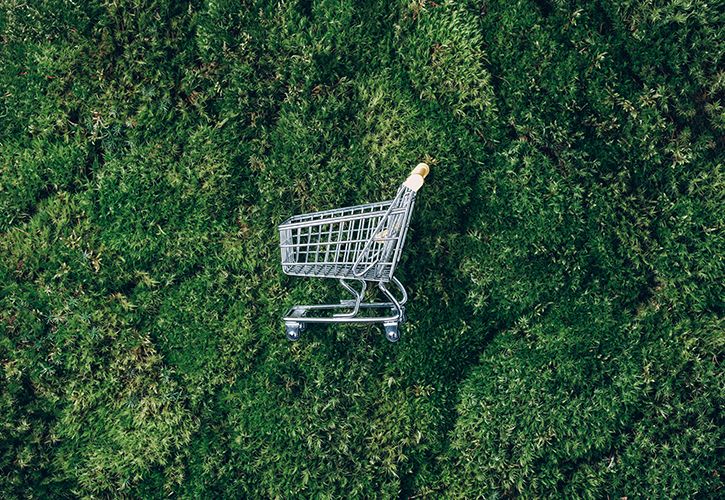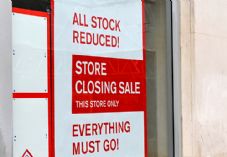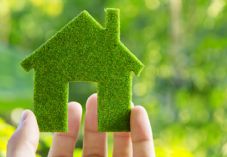UK DIY News
Sustainable Business Leaders Making A Change In Home Improvement

Sustainability is not just a buzzword. Sustainability efforts in business have evolved, and the home improvement industry is no different. In recent years, many companies have published their sustainability initiatives. In reaction to COP26, even more businesses are declaring their support and commitment to change.
Not only are companies focusing on their own credentials, but that too on the services or products they provide. This means we have seen an increase in buy-back and recycling schemes on offer, a greater focus on the lifestyle of products and innovative use and reuse of materials within the home improvement industry.
This article, we will celebrate the home improvement business leaders who are paving the way towards a more sustainable future and setting the example for other DIY brands to follow.
B&Q (Kingfisher PLC Group)
Keen to share their Responsible Business strategy, Kingfisher Group focuses on four priority areas: timber, energy, innovation and communities.
B&Q have been focusing on their sustainability efforts for a while now. In fact, B&Q’s efforts date back to 1991, with their timber policy. This policy means that they only sell timber, including all products containing any wood product, traceable to responsibly managed sources.
The company has continued to publicly share both their achievements and their future goals, especially when it comes to CO2 reduction and their ‘One Planet Home’ initiative. Most recently, from January 2021, B&Q also offers limited electronic recycling, however, it is only available for recent customers.
With 2 million tonnes of WEEE (Waste Electrical and Electronic Equipment) being discarded every year in the UK, wider recycling for these appliances is necessary to help improve on the small percentage that are currently being repurposed or recycled.
As one of the leaders in DIY and home improvement, it is good to see Kingfisher, and specifically B&Q, leading the way for sustainability in the industry. While there is still room for improvement, they have clear goals and offer transparency with their policies.
Wickes
Following B&Q’s example, Wickes is also working hard to provide responsibly sourced timber in their wood products. This is significant when you consider that more than a third of Wickes products contain some timber or timber fibre.
Working with WWF Forest and Trade Network, much of the timber used in Wickes comes from forests managed according to strict environmental, social and economic standards. These are highlighted with a Forest Stewardship Council (FSC) logo.
Travis Perkins
Travis Perkins, who own the likes of ToolStation and BenchMarx, also keenly share their Sustainability Report, which focuses on their Sustainable Business Framework with 6 leading and 6 strong focus areas. These range from net zero carbon and responsible sourcing, to moving towards a circular economy and waste management.
With responsibly sourced timber being a common theme in the sustainable home improvement business, 98% of their timber came from FSC certified sources and saw 94% of waste diverted from landfills in 2020. By designing more sustainable products and focusing on the durability and maintenance of these, Travis Perkins is presenting themselves as leaders in conscious construction.
IKEA
Swedish giants, IKEA, have really amped up their sustainability efforts. Finding that sustainable living was perceived as too expensive, they have tried to tackle this in numerous ways, from choosing sustainability materials to introducing home solar power systems.
One way they have demonstrated this is through their approach to shopping event Black Friday. Instead of partaking in promotional activity, IKEA decided to celebrate ‘Green Friday’; to make it easier for consumers to reduce waste, reuse existing furniture and even trade-in existing IKEA furniture for new items.
IKEA even launched a second-hand-only store, reselling preloved items. IKEA is enabling consumers to make conscious choices when it comes to home furnishings and overall home improvement.
Final Thoughts
With consumers increasingly conscious about sustainability, it is important for the home improvement industry to talk about and take action. While there is still a long way to go for true circularity, it is encouraging to see many big players in home improvement making commitments to sustainability.
From responsibly sourced timber to buy-back opportunities, the entire life-cycle of DIY materials and products are being considered. Together with ambitious carbon goals, the home improvement industry is proving that they, too, can be leaders in sustainability.
Source : Kelly Edwards, https://www.linkedin.com/in/kellyedwardsinterior/
Image : j.chizhe / shutterstock.com (1855145848)
Insight provides a host of information I need on many of our company’s largest customers. I use this information regularly with my team, both at a local level as well as with our other international operations. It’s extremely useful when sharing market intelligence information with our corporate office.











































